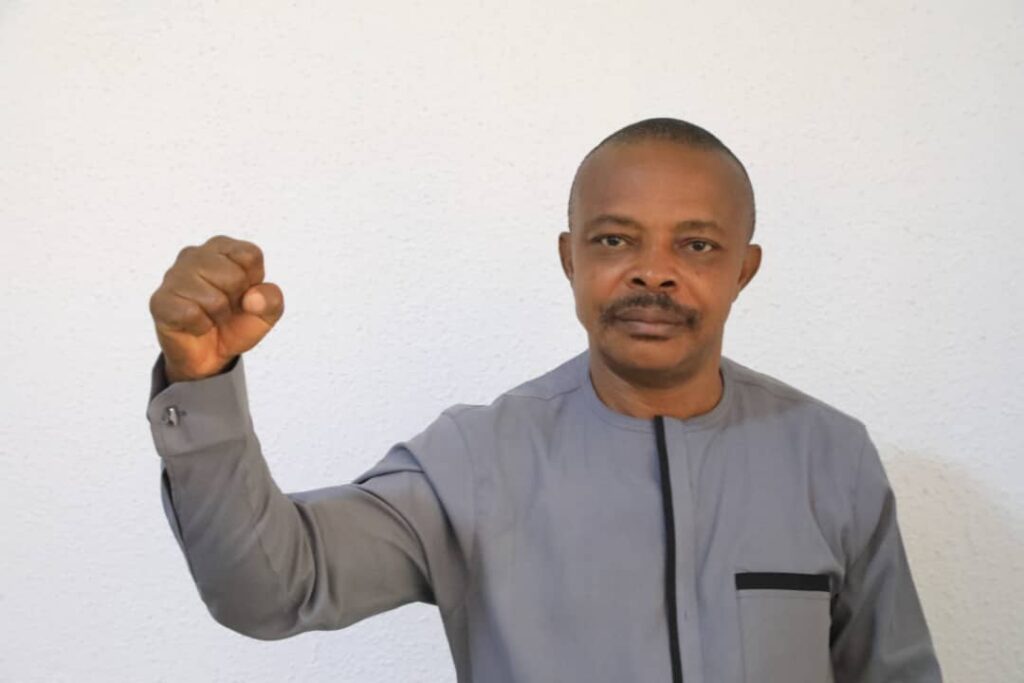Comrade Joe Ajaero, the President of the Nigeria Labour Congress (NLC), on Tuesday, August 20, declined to appear for a scheduled police interview regarding allegations of terrorism financing and other serious accusations. Ajaero, who had been summoned by the Nigerian Police Force (NPF) just a day earlier, cited prior commitments as the reason for his non-attendance. Through his legal representatives at Falana and Falana Chambers, the labour leader communicated his intention to reschedule the meeting for August 29, 2024, and requested detailed information about the allegations leveled against him.
The police summons, which was issued by the Deputy Commissioner of Police Intelligence Response Team, Department of Force Intelligence, had warned that failure to comply could lead to Ajaero’s arrest. The letter, signed by Assistant Commissioner of Police Adamu S. Muazu, outlined the serious nature of the allegations, including possible links to terrorism financing and cybercrime. The urgency and gravity of the summons were evident, but Ajaero, through his legal counsel, expressed his willingness to cooperate fully with the investigation—albeit on a different date.
In the letter addressed to the police, Ajaero’s legal team, led by human rights activist Chief Femi Falana, detailed the reasons for the labour leader’s inability to attend the interview on the initially scheduled date. They emphasized that the police invitation was received on Monday, by which time Ajaero had already committed to other engagements for August 20. The letter also highlighted that Ajaero had no intention of evading the inquiry and expressed his readiness to respond to all questions concerning the allegations during the rescheduled interview on August 29.
The situation has garnered significant attention, not only because of the serious nature of the allegations but also due to the prominent role Ajaero plays as the leader of Nigeria’s largest labour union. The NLC, under Ajaero’s leadership, has been at the forefront of advocating for workers’ rights and has often clashed with the government on issues such as wage increases, labor laws, and economic policies. This recent development has added another layer of complexity to the already charged political atmosphere in Nigeria.
While the police have not disclosed the full details of the allegations publicly, the involvement of high-ranking officials from the Intelligence Response Team suggests that the matter is being treated with the utmost seriousness. The inclusion of terrorism financing among the charges raises the stakes, as such allegations carry severe legal consequences and could have broader implications for the NLC’s activities and its leadership.
Ajaero’s decision to defer the police interview has sparked discussions in legal and political circles, with some viewing the move as a strategic attempt to buy time, while others see it as a necessary step to ensure that due process is followed. The request for detailed information about the allegations before the interview is seen by some as a way to prepare an adequate defense, while others argue that it is a standard legal procedure.
As the August 29 interview date approaches, all eyes will be on how the situation unfolds. The outcome of this inquiry could have significant repercussions not only for Ajaero personally but also for the broader labour movement in Nigeria. The public and political observers alike are waiting to see whether the allegations will hold up under scrutiny or if they will be dismissed, allowing Ajaero to continue his leadership without the shadow of these serious accusations hanging over him.
In the meantime, the NLC remains focused on its ongoing efforts to address the challenges facing Nigerian workers, even as its leader navigates this complex legal situation. The events of the coming weeks will undoubtedly shape the future of the NLC and potentially alter the landscape of Nigerian labour relations.

